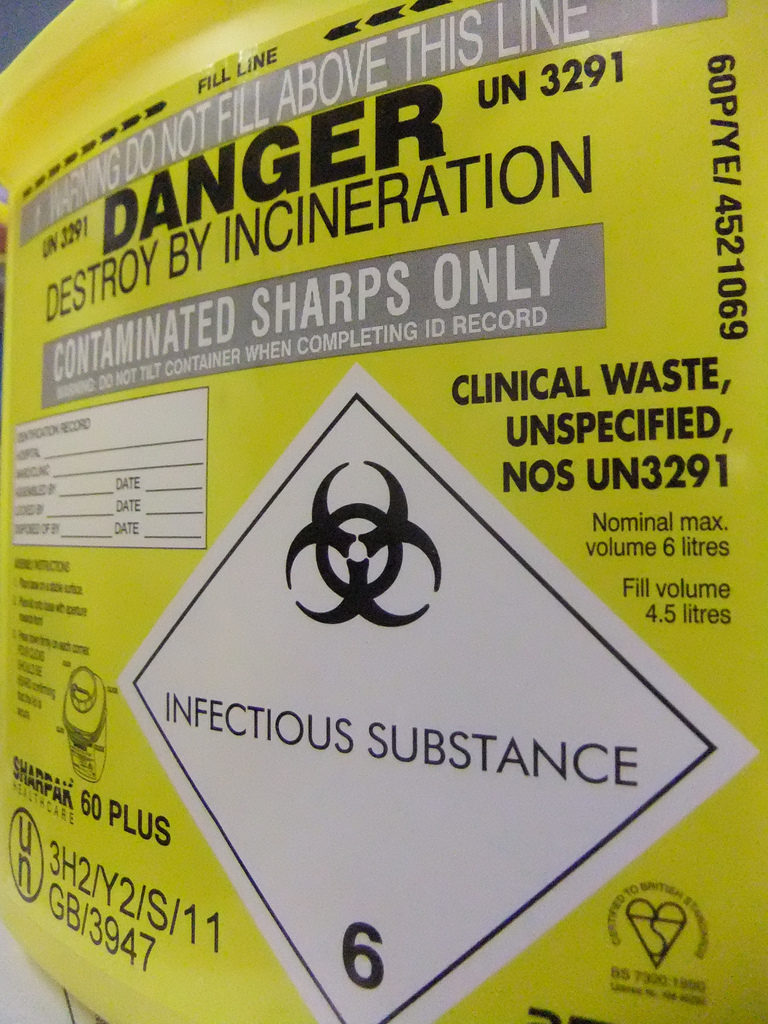Members of the Blithering shadow ICS joint governance committee are feeling anxious. Sir Trevor Longstay is in a good mood. This is usually a bad sign.
Last time Sir Trevor smiled it was before he announced a major outbreak of infection at Blithering General – a source of pleasure mainly because it cost the job of Sue Sharpe, the hospital’s chief executive and a vocal critic of Sir Trevor. His joke about her safe disposal was considered in poor taste even among those who also relished Ms Sharpe’s demise.
This time, however, Sir Trevor, knighted for services to the clinical waste industry, has had even better news. After one of his rivals has been caught stockpiling body parts, the contracts are up for tender and Longstay family business WasteAway Plc is the favourite to pick them up.
Everyone congratulates Sir Trevor warmly on his good fortune and the improvement in WasteAway’s share price. Martin Plackard, whose portfolio communications career includes private sector work for Sir Trevor in addition to his NHS commitments, has already issued a press release warning of the ongoing risk to public health should the contract go the wrong provider. He encloses a recent photo of Sir Trevor shaking hands with health secretary Matt Hancock at the launch of the WastApp social media platform for clinical waste operatives.
Longstay is positively beaming when winter planning is first on the agenda. Sir Trevor likes winter. It brings out the military strategist in him. He was the brains behind the Blithering State of Readiness Plan (SRP). Scheduled to be published in the spring, the SRP usually does not appear until at least October, but it’s running late this year and Sir Trevor wants to know why.
The answer is that the draft 2018/19 SRP was one of many documents wiped from Sue Sharpe’s hard drive. Sharpe had been chair of the State of Readiness planning committee, which has been unable to schedule a meeting to elect a new chair since her departure. As the new plan was now unlikely to appear before next spring, a motion is carried to change the date and publish it as the 2019/20 SRP.
That still doesn’t solve the immediate problem of winter. Plackard proposes an interim plan with the title Towards Preparedness. It should have a focus on prevention, one of Mr Hancock’s new favourite words, he says. Plackard is interrupted by a question from Dr David Rummage.
“No, David, we can’t prevent winter, but we can mitigate the risks,” he says.
Plackard presents a storyboard for Blithering’s integrated winter public health campaign. “Warmer Together” encourages people to collaborate to stay warm and combat loneliness. “Farewell Flu” advises them to get a flu jab from their GP, particularly before visiting settings posing a high-risk of infection such as GP surgeries. And “Be Sure or Go Away!” asks people to think again about how they use urgent care services.
Plackard explains the messaging strategy behind the campaign. Firstly it discourages users from going to A&E except when loss of life is certain. Secondly it contains useful information about other hospitals within a 50 mile radius of Blithering in the event of another seasonal shutdown of local facilities. All agree that adding phone numbers of local taxi firms is a particularly helpful touch.
Rummage protests that as local GPs are already running out of flu vaccine there is little point in whipping up more demand. “Nonsense,” replies Sir Trevor. “We have a duty make them aware of the services we provide, regardless of the extent to which we provide them.” He also reassures Rummage that his eastern European contacts may soon be in a position to resolve the undersupply situation with a “very similar and attractively priced vaccine”, though this is not for minuting.
Louise Gant, director of public health, calls Plackard’s campaigns “patronising and full of platitudes”. A lesser man might have been hurt. Plackard coolly cites a definitive study of the use of banality in public health promotion by the Netherlands Institute of Digital Marketing. “The international evidence base is clear. Platitudes speak louder than words,” he says.
Sir Trevor bestows his friendliest glare on Plackard. “Thank you, Martin. I’m satisfied that we have taken all possible steps towards a credible plan,” he says.
All agree that the RAG rating for the winter risk to their jobs can safely be downgraded to amber.
Winter readiness editor: Julian Patterson
@NHSnetworks
julian.patterson@networks.nhs.uk
Reproduced at thetrainingnet.com by kind permission of Julian Patterson.








